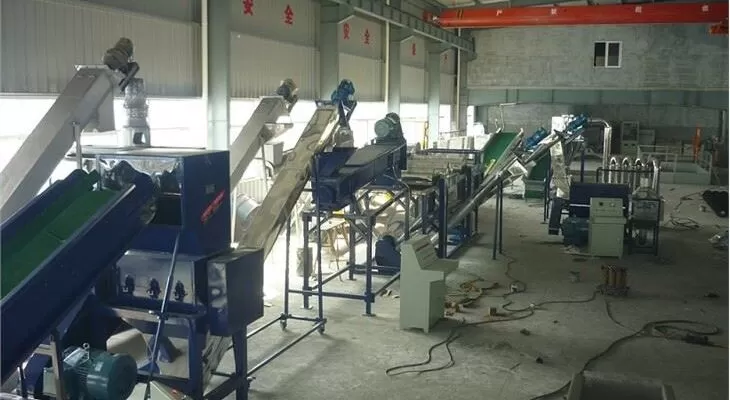The tourism industry—vibrant, alluring, and often seen as a gentle touch on the environment. But let’s be real. Behind the breathtaking views and unforgettable experiences lies a significant issue: plastic waste. Tons of plastic waste from single-use bottles, bags, and packaging are left behind by tourists, threatening the natural beauty and wildlife of destinations. But what if I told you that this plastic waste could actually be a goldmine? A resource rather than a nuisance?

Yes, that’s right. By recycling plastic, the tourism industry can not only reduce its environmental impact but also create new opportunities and value. Imagine turning discarded plastic into new products, even souvenirs, adding an eco-friendly touch to the entire tourism experience.
Sounds intriguing, doesn’t it? Let’s dive into how plastic recycling is making waves in tourism and why it’s something we should all be talking about.
Why Does the Tourism Industry Need to Focus on Plastic Recycling?
First things first—why should the tourism industry care about plastic recycling? Because tourism is one of the largest contributors to plastic pollution. From the moment a tourist arrives, plastic is everywhere—water bottles, packaging, disposable utensils. Tourists often leave behind a trail of plastic waste that, if not managed properly, turns into an environmental ticking time bomb.
However, by embracing plastic recycling, tourism hotspots can significantly reduce waste accumulation. This not only helps protect the natural environment but also boosts the image of the destination, making it more attractive to eco-conscious travelers. And the benefits don’t stop there. By recycling plastic, tourism operators can develop eco-friendly products, creating a circular economy that minimizes waste.
How Can Plastic Recycling Enhance the Tourist Experience?
You might wonder, how does plastic recycling impact the tourist experience? The answer is simple—a destination that prioritizes environmental sustainability leaves a lasting impression on visitors. Today’s tourists are increasingly eco-conscious, seeking out destinations that not only offer beauty and adventure but also demonstrate a commitment to preserving the environment. This commitment isn’t just about reducing plastic waste; it’s about innovation.
For instance, some destinations are turning recycled plastic into sustainable products like reusable water bottles or souvenirs. Tourists can purchase these items, satisfying their desire for keepsakes while contributing to the environment. What’s even better is that such initiatives often result in positive word-of-mouth, as tourists love to share stories of destinations that align with their values.
How Can Tourism Operators Integrate Plastic Recycling Into Their Operations?
So, how can tourism operators make plastic recycling a reality? First, establishing an effective recycling system within the destination is crucial. This means setting up sufficient recycling stations throughout the area with clear signage to guide tourists on proper disposal.
Next, collaborating with recycling companies ensures that the collected plastic is properly processed. For example, operators can partner with plastic recycling factories to ensure that the collected waste is shredded, cleaned, and repurposed into new products.
Finally, educating tourists about recycling and encouraging their participation can make a huge difference. This not only raises awareness but also strengthens the connection between the tourists and the destination, enhancing their overall experience.
What Economic Benefits Can Plastic Recycling Bring to Tourism Operators?
When it comes to plastic recycling, many people think only about the environmental benefits. But it can also bring significant economic advantages. By turning recycled plastic into new products, tourism operators can create a new revenue stream. For example, converting plastic waste into unique souvenirs or sustainable facilities not only aligns with modern consumer values but also enhances the destination’s brand image.
In addition to product creation, plastic recycling can also reduce waste management costs. Managing waste, especially in remote tourist destinations, can be expensive and complex. By effectively recycling plastic, operators can reduce the volume of waste, cutting down on transportation and disposal costs, and boosting overall operational efficiency.
Is Smart Recycling the Future of Plastic Recycling in Tourism?
With the advancement of technology, the future of plastic recycling could be smarter than we ever imagined. Some destinations are already implementing smart recycling systems that use big data and IoT technologies to automate and optimize the recycling process. This not only increases efficiency but also allows for real-time monitoring of the types and amounts of waste generated, providing valuable data for future waste management strategies.
Smart recycling systems can also incorporate reward mechanisms, encouraging tourists to actively participate in recycling. Tourists can earn points for recycling, which they can then redeem for discounts or gifts within the destination. This not only boosts participation but also enhances revenue and tourist loyalty.
How Does Plastic Recycling Support Sustainable Tourism?
Finally, let’s discuss how plastic recycling supports sustainable tourism. The core of sustainable tourism lies in balancing the growth of the tourism industry with environmental protection. Plastic recycling is one of the key methods to achieve this balance.
By recycling plastic, tourism operators can not only reduce pollution but also demonstrate their commitment to environmental stewardship. This commitment will attract eco-conscious tourists, build a positive brand image, and enhance the social responsibility of the destination. Most importantly, through plastic recycling, the tourism industry can foster a harmonious relationship with nature, laying the foundation for sustainable development in the future.
Conclusion
In summary, the application of plastic recycling in the tourism industry is vast and promising. By effectively utilizing plastic recycling technologies, the tourism industry can not only reduce its environmental footprint but also create new economic value and enhance the tourist experience. The future of tourism will undoubtedly be more focused on sustainability and environmental protection, and we should all look forward to this positive transformation.
And just like that, plastic recycling isn’t just an environmental necessity—it’s the way forward for a more sustainable tourism industry.
